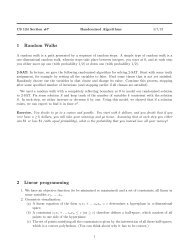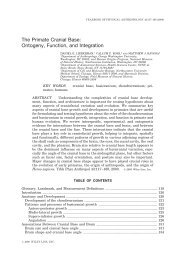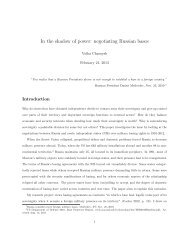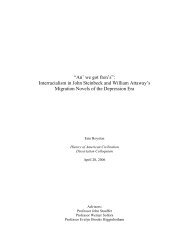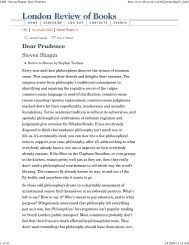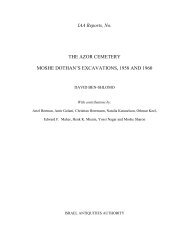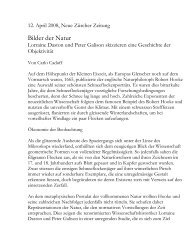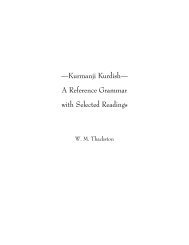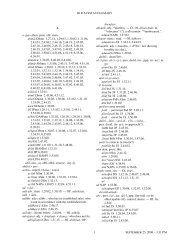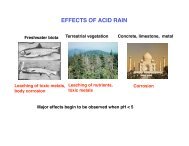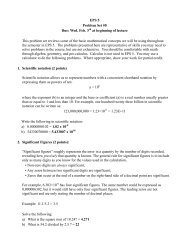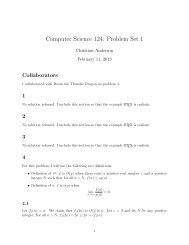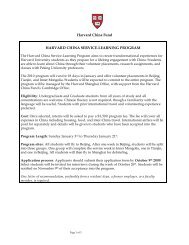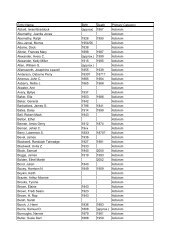—Kurmanji Kurdish— A Reference Grammar with Selected Readings
—Kurmanji Kurdish— A Reference Grammar with Selected Readings
—Kurmanji Kurdish— A Reference Grammar with Selected Readings
Create successful ePaper yourself
Turn your PDF publications into a flip-book with our unique Google optimized e-Paper software.
ojname xwendin ‘to read newspapers,’ kovar weşandin ‘to publish journals,’<br />
and hotêl çûyîn ‘to frequent hotels’ are generic compounds. A modified<br />
direct object of an infinitive is linked to the infinitive by an objective<br />
genitive construct. So, vexwarina qehweya xwe ‘to drink one’s coffee,’<br />
xwendina rojnameya xwe ya bi kurdî ‘to read one’s newspaper in Kurdish,’<br />
weşandina kovara xwe ‘to publish one’s journal,’ and çûyîna min ya<br />
hotêlê ‘my going to the hotel,’ where the objects and complements are definite,<br />
indefinite, or modified (i.e. not generic), become construct phrases.<br />
Ez dixwazim her sibeh bi vexwarina<br />
qehweya xwe re rojnameya xwe ya bi<br />
kurdî jî bixwînim.<br />
I want to read my newspaper in Kurdish<br />
every morning while drinking my coffee.<br />
Bi çûyîna min ya hotêlê dilê xwe girtin. They were offended by my going to the<br />
hotel.<br />
The infinitive is also used <strong>with</strong> the preposition ji bo to express purpose:<br />
Ji bo dîtina wan ez çûme Sûriyê. I went to Syria in order to see them.<br />
Min bihîst ku li welatên Rohelat çil sal<br />
xebat divêt ji bo çêkirina şerbikekî<br />
ferfûrî.<br />
THE VERB<br />
I have heard that in the countries of the<br />
Orient forty years of labor are needed in<br />
order to produce a porcelain vase.<br />
§ 14. The Present Tense. The present tense corresponds to the English<br />
present used for habitual action (“I work”) and to the present progressive<br />
(“I’m working”). It is formed from the present stem of the verb.<br />
The present stems of a few very common verbs are totally irregular and<br />
must be learned as a principal part of the verb (e.g. dîtin ‘to see’ > bîn-,<br />
xwestin ‘to want’ > xwaz-). With few exceptions, verbs <strong>with</strong> infinitives<br />
ending in -an, -iyan, -în, and -ûn are regular and form the present stem by<br />
dropping those endings. Verbs that end in -andin (for which type see §28<br />
below) form their present stems by changing the -andin ending to -în- (e.g.<br />
mirandin ‘to cause to die’ > mirîn-).<br />
To form the present tense, the stressed progressive/habitual modal marker<br />
dí is prefixed to the present stem, and the following suffixed personal endings<br />
are added to the stem.<br />
33



